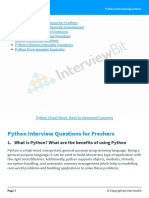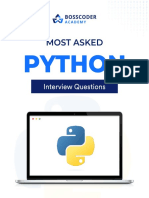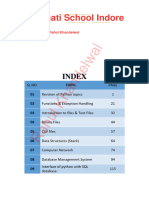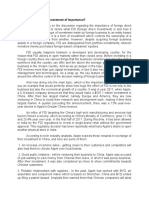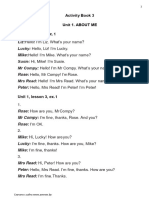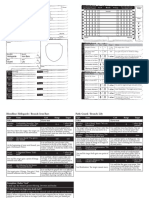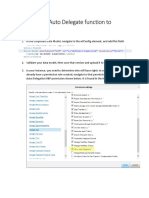0% found this document useful (0 votes)
25 views6 pagesPython Interview 40 Basic 40 Intermediate
This document contains a compilation of Python interview and practice questions prepared for Devi Prasad Dubey. It covers basic and intermediate topics, including definitions, data types, functions, and exception handling in Python. Each question is followed by a concise answer, providing essential information for interview preparation.
Uploaded by
dubeyharsh9569Copyright
© © All Rights Reserved
We take content rights seriously. If you suspect this is your content, claim it here.
Available Formats
Download as PDF, TXT or read online on Scribd
0% found this document useful (0 votes)
25 views6 pagesPython Interview 40 Basic 40 Intermediate
This document contains a compilation of Python interview and practice questions prepared for Devi Prasad Dubey. It covers basic and intermediate topics, including definitions, data types, functions, and exception handling in Python. Each question is followed by a concise answer, providing essential information for interview preparation.
Uploaded by
dubeyharsh9569Copyright
© © All Rights Reserved
We take content rights seriously. If you suspect this is your content, claim it here.
Available Formats
Download as PDF, TXT or read online on Scribd
/ 6








